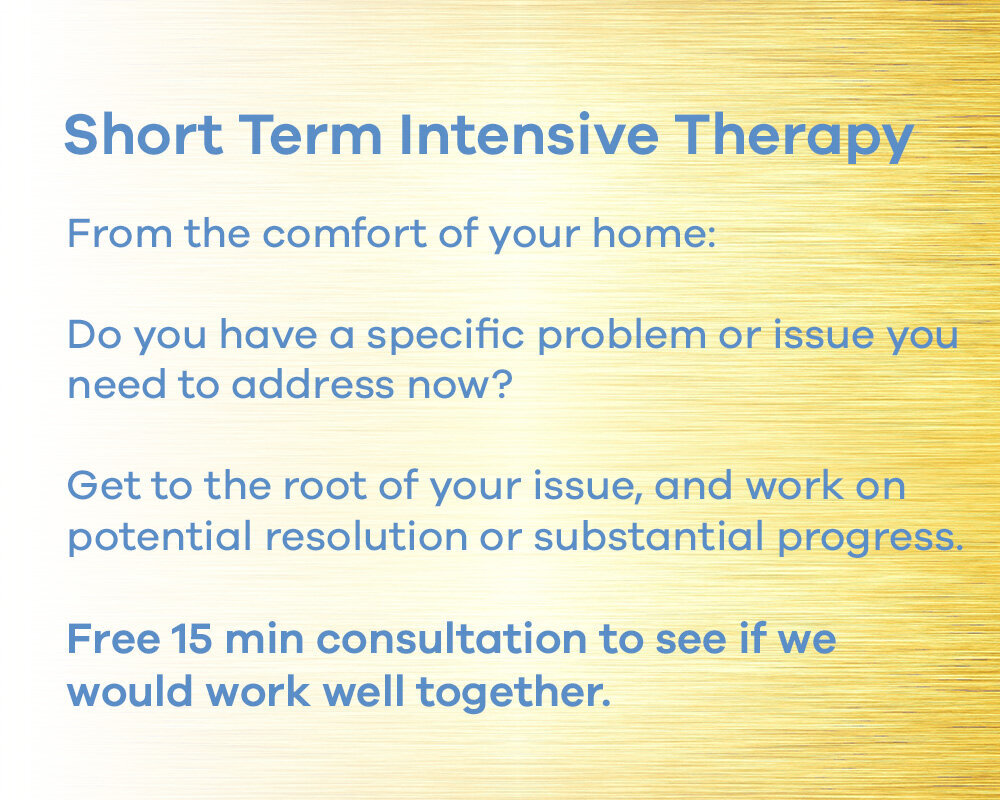Counseling vs. Psychotherapy, or a Rationale for the Transformational Work of Psychotherapy
/
I do a lot of training of new therapists and when I meet them, I have discovered that many do not really understand the difference between counseling and psychotherapy. Much of what passes for psychotherapy is actually counseling. Unfortunately, most are not educated to know the difference. If therapists don't know the difference, how are consumers supposed to know? I will try to make some distinctions here so people seeking help will understand the difference and be better informed.
Counseling:
The counselor's main goal is to make the clients feel better. He rarely challenges them outside of very restricted parameters. The counselor works hard to make sure the clients like him. He does not dig into the past in a way that would be painful; he is less interested in the past and more interested in stopping any bad or destructive current behavior. As in addiction counseling, there is an underlying fear that going too deep will cause relapse, and thus destroy any fragile recovery. There is a lot of advice giving and varying amounts of psycho-education.
Psychotherapy:
Psychotherapy includes all of the above, and also includes the underpinning philosophy that healing requires uncovering the underlying pain/trauma that is causing the dysfunction. Also, there is less focus on making sure the clients like the therapist. Of course, there should be a good therapeutic alliance. However, the therapist must be willing to take risks for healing to happen. Going into the pain, especially its source is essential if transformation is to take place.
So, the job of the psychotherapist is to assist the clients into going deep inside themselves, to help reconnect to those downloaded beliefs and values, especially the ones that are at odds with other parts of themselves and their goals. Also, the psychotherapist helps clients get to the over broad conclusions, reached so long ago, that are keeping them from receiving or getting love. This takes time and the willingness to assist the clients into going in to the pain and staying long enough to transform it into something new.
Rationale:
A child has two primary tasks growing up. One is to absorb the love of her parents so she feels secure in the world. The second task is to make sense of the world; to take all the data she encounters and organize them into a workable interface with the world.
A child is formed in the container of the parents' relationship. The parents' relationship is his model for being in a relationship, and his individual relationship with each parent is the model for being in relationship with others of that gender. Also, how a child ingrains the love that the parent offers is key to how he looks for love and loves himself.
As a baby, the child swallows everything that is put into her mouth because she is too young to know or understand what is good or bad for her. She does the same with values and beliefs from family and society. These swallowed beliefs and values make up a large part of the organization that she uses to understand the world and make sense of it.
Experience is the other big teacher for a child. If a child burns his finger on the stove, he learns that this is not a good thing to do. Unfortunately a child often makes overly broad conclusions from these experiences before he has enough information to make generalizations about the world. For instance, a 4-year-old boy does not get to wear the shirt that he really wanted to wear. He concludes that he never gets what he wants or that his mother does not love him because he is unlovable. From an adult perspective, both conclusions are silly, but to a child with limited experiences, they make sense and can easily become the foundation for how he sees the world and his place in it.
Therapist and client get to spend a lot of time looking at those early models for relationships, to reexamine the ideas of what relationships of all types really look like. This often means letting go of a lot of fantasies about how relationships work.
Psychotherapy takes time, it takes a lot of trust and it takes willingness to face and work through pain. A psychotherapist is a guide and companion on that journey. The results can be rewarding but like most things that are good for us, there is pain involved.
In my experience, psychotherapists that have done a lot of work on themselves are much more likely to do psychotherapy rather than just counseling.
Conclusion:
If a therapist is not willing to assist in going into the pain and trauma, he probably is a counselor. If you want a counselor rather than a psychotherapist, that is certainly okay, as long as you are aware of the differences and set your expectations accordingly.
While a counselor may make you feel good, healing will not be as easy to achieve. I will use the analogy of Swedish massage vs. physical therapy. One will make you feel good briefly, while the other addresses the underlying issues and will likely cause pain while solving the problem, rather than just masking it temporarily.




